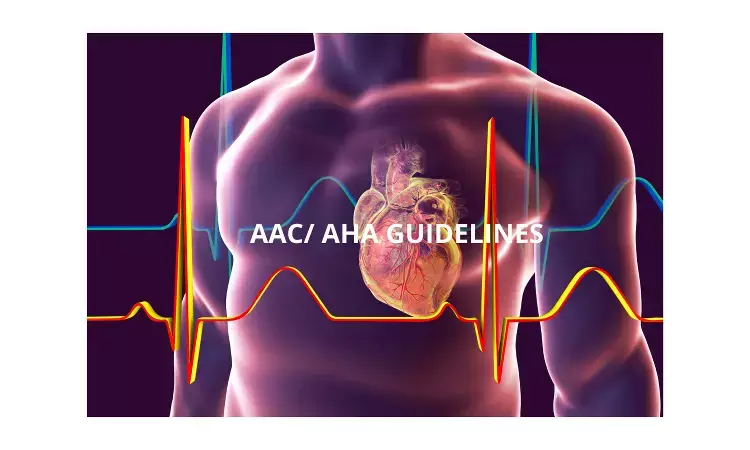- Home
- Medical news & Guidelines
- Anesthesiology
- Cardiology and CTVS
- Critical Care
- Dentistry
- Dermatology
- Diabetes and Endocrinology
- ENT
- Gastroenterology
- Medicine
- Nephrology
- Neurology
- Obstretics-Gynaecology
- Oncology
- Ophthalmology
- Orthopaedics
- Pediatrics-Neonatology
- Psychiatry
- Pulmonology
- Radiology
- Surgery
- Urology
- Laboratory Medicine
- Diet
- Nursing
- Paramedical
- Physiotherapy
- Health news
- Fact Check
- Bone Health Fact Check
- Brain Health Fact Check
- Cancer Related Fact Check
- Child Care Fact Check
- Dental and oral health fact check
- Diabetes and metabolic health fact check
- Diet and Nutrition Fact Check
- Eye and ENT Care Fact Check
- Fitness fact check
- Gut health fact check
- Heart health fact check
- Kidney health fact check
- Medical education fact check
- Men's health fact check
- Respiratory fact check
- Skin and hair care fact check
- Vaccine and Immunization fact check
- Women's health fact check
- AYUSH
- State News
- Andaman and Nicobar Islands
- Andhra Pradesh
- Arunachal Pradesh
- Assam
- Bihar
- Chandigarh
- Chattisgarh
- Dadra and Nagar Haveli
- Daman and Diu
- Delhi
- Goa
- Gujarat
- Haryana
- Himachal Pradesh
- Jammu & Kashmir
- Jharkhand
- Karnataka
- Kerala
- Ladakh
- Lakshadweep
- Madhya Pradesh
- Maharashtra
- Manipur
- Meghalaya
- Mizoram
- Nagaland
- Odisha
- Puducherry
- Punjab
- Rajasthan
- Sikkim
- Tamil Nadu
- Telangana
- Tripura
- Uttar Pradesh
- Uttrakhand
- West Bengal
- Medical Education
- Industry
ACC/AHA guidelines 2021 not acknowledged by cardiac surgeons

Cardiovascular diseases (CVDs) are the leading cause of death globally, taking an estimated 17.9 million lives each year. Coronary artery disease (CAD) is the narrowing of the coronary arteries, the blood vessels that supply oxygen and nutrients to the heart muscle. Coronary artery bypass graft surgery (CABG) is a procedure used to treat CAD. Survival estimates among CABG patients were 92% at 5 years, 77% at 10 years, 57% at 15 years, and 40% at 20 years.
Several guidelines have been enlisted for better cardiac management, however recent new revascularization guidelines 2021 from the American College of Cardiology and American Heart Association (ACC/AHA) were not accepted by cardiac surgeons.
Dr J.F. Sabik and team putforth reasons for not acknowledging the new revascularization guidelines 2021 from the ACC/AHA, they enlisted list three main areas of concern, starting with the downgrading of evidence issue of CABG in multivessel CAD. Two organizations ACC/AHA, had been involved in the guideline-drafting process for 3 years but declined to accept the final recommendations, it is published in journal The Annals of Thoracic Surgery.
The ACC/AHA guidelines for coronary artery revascularization, drafted in partnership with the Society for Cardiovascular Angiography and Interventions, main purpose was to replace or retire six existing guidelines, including those for Percutaneous Coronary Intervention (PCI) and CABG (2011), as well as those for stable ischemic heart disease, ST-elevation myocardial infarction (STEMI), and Non-ST elevation-acute coronary syndrome (NSTE ACS) 2012, 2013, and 2014, respectively.
Both Organization found an over interpretation of studies that weren't determined to test whether coronary surgery helps people live longer with triple-vessel disease versus medical therapy, Sabik and colleagues considered the ISCHEMIA trial in supporting a downgrade from class 1 to 2b for CABG to improve survival compared with medical therapy in three-vessel CAD and normal left ventricular function, and from class 1 to 2a for CABG to improve survival in three-vessel CAD and mild-to-moderate left ventricular dysfunction. They found there is no appreciation of randomized studies such as SYNTAX or EXCEL or NOBLE, where coronary artery bypass surgery was shown to be very good in the long term.
According to the American Association for Thoracic Surgery (AATS) and Science, Technology and Society (STS), guidelines treat PCI and CABG as equal in terms of revascularization and outcomes. They stated they believe that there are benefits to CABG that is not seen in PCI, and it's reported in the most recent randomized studies however it was ignored and was the second major issue. Thirdly, the surgical societies believe that the new guidelines gave too much reliance to radial access, giving it a class 1 recommendation as a conduit in CABG.
Both the surgical group believe this is highlights a serious problem in the guideline-writing process that calls for ongoing discussion about how to achieve equitable representation by multidisciplinary experts across specialties. Further respecting the right of the surgeons on the writing committee to remain as authors on these guidelines, despite the surgical societies not endorsing the guidelines they putforth their concerns of CABG and heart management.
reference: https://doi.org/10.1016/j.athoracsur.2021.12.003
Medical Dialogues consists of a team of passionate medical/scientific writers, led by doctors and healthcare researchers. Our team efforts to bring you updated and timely news about the important happenings of the medical and healthcare sector. Our editorial team can be reached at editorial@medicaldialogues.in.
Dr Kamal Kant Kohli-MBBS, DTCD- a chest specialist with more than 30 years of practice and a flair for writing clinical articles, Dr Kamal Kant Kohli joined Medical Dialogues as a Chief Editor of Medical News. Besides writing articles, as an editor, he proofreads and verifies all the medical content published on Medical Dialogues including those coming from journals, studies,medical conferences,guidelines etc. Email: drkohli@medicaldialogues.in. Contact no. 011-43720751


